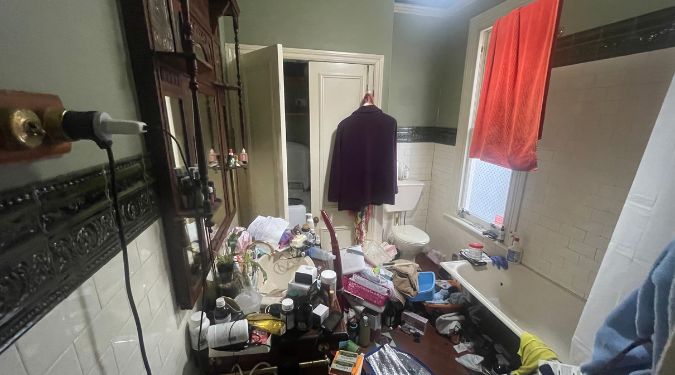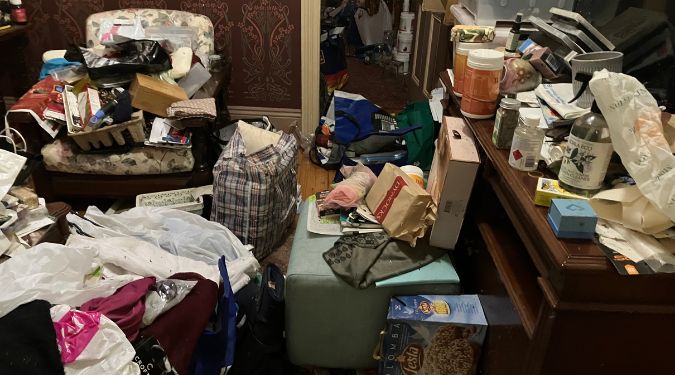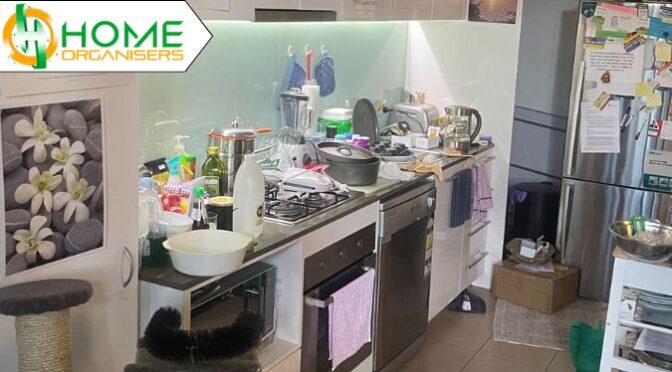Understanding and using the National Disability Insurance Scheme (NDIS) can be tricky for many participants and their families. Psychologists and occupational therapists (OTs) often write detailed reports for the NDIS that describe a participant’s needs and suggest supports. But turning these reports into actual help at home — especially with things like decluttering and organising — can be challenging. That’s where Home Organisers steps in. We specialise in helping psychologists and OTs make their recommendations come alive, so participants get the support they really need to live safely, comfortably, and independently.
What Are NDIS Reports and Why Do They Matter?
NDIS functional assessments form the backbone of NDIS reports. These assessments provide an in-depth look at a participant’s strengths and challenges, helping clinicians like psychologists and OTs to identify priority areas for support. Psychologists use these insights to set clear psychologist NDIS goals, while OTs often recommend practical interventions, including home environment modifications and OT home safety measures to reduce risks.
The problem is, these reports are often technical and can be hard to understand. They don’t always explain how to take the ideas and turn them into real actions in a participant’s daily life. This is especially true when it comes to creating a decluttering plan that fits a participant’s unique needs.
At Home Organisers, we work closely with the referring psychologists and OTs to ensure the support we provide matches exactly what is recommended in the NDIS reports, including the detailed findings from NDIS functional assessments. We carefully read through the goals and needs described and then design a personalised plan that takes into account the participant’s physical, cognitive, and emotional needs.
We visit the participant’s home and look at how the space is used, where clutter builds up, and what areas might be causing stress or safety issues. This assessment process incorporates important elements of OT home safety to ensure the environment supports the participant’s wellbeing. Then, we break down the decluttering and organising tasks into small, manageable steps. This helps prevent overwhelm and allows the participant to feel confident and in control.
Throughout the process, we keep in touch with the psychologists and OTs to share updates and make sure our support is helping participants meet their psychologist NDIS goals.

Health Benefits of Decluttering Support
Decluttering isn’t just about making a home look tidy — it has real health benefits. A cluttered space can increase the risk of falls and accidents, especially for people with physical disabilities or mobility challenges. Our attention to OT home safety ensures that the home environment minimises these risks. By organising the home and removing unnecessary items, we create a safer environment that supports daily living.
Moreover, a clean and organised home reduces allergens like dust and mould, which can improve breathing and overall health. For people with conditions such as asthma or allergies, this can be life-changing. This aligns with the outcomes targeted in many NDIS functional assessments, which highlight environmental factors affecting health.
Mental and Emotional Wellbeing
Living in a cluttered space can be mentally exhausting. It often leads to feelings of overwhelm, anxiety, and even depression. When there is too much stuff around, it becomes harder to focus, relax, or feel in control of one’s environment.
Our decluttering support helps reduce this mental load by creating calm, organised spaces. This can improve mood and reduce stress, helping participants work towards their psychologist NDIS goals related to emotional regulation and mental wellbeing. Participants often tell us they feel lighter and more positive once their home feels more manageable.
Supporting Family Life
For many participants, family is a crucial part of their support system. A cluttered or unsafe home can create tension or stress within families. It may also make it harder for carers or family members to help when they need to.
By helping participants create organised, functional living spaces, we improve family dynamics. Carers can provide better support, and family members often feel more at ease knowing the home environment is safe and manageable, reflecting the recommendations often found in OT home safety assessments.
Boosting Productivity and Independence
A well-organised home supports participants to do more for themselves. This might mean being able to find important items quickly, prepare meals safely, or complete personal care tasks with greater ease.
When the home is clutter-free and items are easy to access, participants can spend less time searching for things and more time doing what matters to them. This boost in productivity also encourages independence — a core goal identified in many NDIS functional assessments and the psychologist NDIS goals set during therapy.

Impact on Mood and Overall Wellbeing
Our environment greatly affects our mood and general wellbeing. A cluttered, chaotic home can lead to feelings of frustration and low motivation. On the other hand, an organised and peaceful space can help participants feel calmer, happier, and more optimistic about the future.
By creating supportive living spaces aligned with the safety and functionality standards of OT home safety, we help participants experience better daily moods and improve their overall quality of life.
Financial and Wealth Considerations
While decluttering might not seem directly related to finances, it can have surprising benefits for wealth management. Clutter can hide valuable items or important paperwork, leading to missed opportunities or even financial loss.
An organised home makes it easier to manage bills, important documents, and assets. It can also reduce the need for costly replacements of lost or damaged items. Furthermore, when a home is well-maintained and safe — as guided by OT home safety principles — it helps protect its value and reduce unnecessary spending on repairs.
Why Collaboration with Psychologists and OTs Matters
Psychologists and OTs understand the clinical side of a participant’s needs. They know what goals will improve mental, physical, and emotional health. However, turning these goals into practical, everyday solutions can require specialist knowledge — that’s where Home Organisers provides essential support.
We bring real-world experience in decluttering and home organisation, tailored to each participant’s individual needs and the recommendations in their NDIS reports and NDIS functional assessments. This partnership ensures a seamless transition from clinical advice to practical action.

Making Decluttering Manageable and Respectful
We recognise that decluttering can be an emotional process, especially for participants who may have lived with clutter for a long time or have difficulty making decisions about possessions. Our team works respectfully and patiently, always listening to the participant’s preferences and boundaries.
We focus on creating lasting habits and skills, so participants feel empowered to maintain an organised home in the future — supporting ongoing achievement of their psychologist NDIS goals.
Conclusion
Translating NDIS reports into meaningful decluttering support requires more than just cleaning or tidying up. It involves understanding clinical goals, personal needs, and the complex relationship people have with their living space. At Home Organisers, we help psychologists and OTs bring their recommendations to life, improving safety, wellbeing, independence, and overall quality of life for participants.
By addressing health, mental, emotional, family, productivity, mood, and financial aspects — all while focusing on NDIS functional assessments, OT home safety, and psychologist NDIS goals — we provide holistic support that truly makes a difference. This collaboration helps participants achieve the best possible outcomes from their NDIS plans, with a home environment that supports their journey to greater independence.
Ready to transform your home with expert decluttering support aligned to your NDIS goals?
Call us today on 03 8583 9103 or email nancy@homeorganisers.com.au. Find out more at homeorganisers.com.au.
Case Study 1:
Lisa from Bentleigh – “I Just Needed a Starting Point”
Background:
Lisa, a 37-year-old mother of two, lives in Bentleigh and was diagnosed with ADHD and generalised anxiety disorder. She had recently been approved for NDIS funding following a series of comprehensive NDIS functional assessments. Her psychologist included several psychologist NDIS goals in her plan, focusing on emotional regulation, executive functioning, and reducing overwhelm at home. Her OT also raised OT home safety concerns, noting trip hazards, inaccessible storage, and kitchen risks due to cluttered benches.
The Challenge:
Lisa was emotionally attached to many of her belongings and overwhelmed by the idea of decluttering. Despite receiving a detailed NDIS report, she had no idea how to translate the goals into action. Her psychologist had identified the clutter as a major contributor to her anxiety, and the OT flagged safety risks in key areas like the hallway and laundry — but Lisa felt paralysed.
Our Solution:
Home Organisers stepped in as the practical bridge between Lisa’s clinical recommendations and her daily reality.
- We began by reading the NDIS functional assessments thoroughly, identifying Lisa’s needs around emotional overwhelm, decision fatigue, and safety.
- Working with her OT, we focused first on OT home safety priorities: clearing entryways, securing cables, and reconfiguring laundry access.
- Our team created a weekly support schedule, breaking down tasks into manageable sessions to prevent emotional exhaustion and build confidence.
- We used behavioural prompts recommended by her psychologist to help Lisa make decisions about belongings without stress.
The Transformation:
- Within 6 weeks, Lisa’s home went from chaotic and unsafe to calm, clean, and functional.
- Her anxiety reduced significantly, allowing her to focus better on parenting and returning to part-time study.
- Her psychologist noted substantial progress on her psychologist NDIS goals — particularly around emotional regulation and task completion.
- Lisa’s children now play safely in the lounge, and her partner reports feeling less tension at home.
Lisa’s Words:
“I didn’t realise how heavy my house was making me feel. Every cupboard was a source of stress. The team didn’t just organise my stuff — they gave me back my peace of mind. My OT and psychologist were amazed by how quickly I started improving once the house became manageable.”
Case Study 2:
George from St Kilda – “From Chaos to Confidence”
Background:
George is a 61-year-old NDIS participant living alone in St Kilda. He has early-stage Parkinson’s disease and mild cognitive impairment. His NDIS plan was based on detailed NDIS functional assessments from both his psychologist and OT. The psychologist set clear psychologist NDIS goals around boosting self-confidence, improving motivation, and supporting daily routines. His OT noted several OT home safety issues — including cluttered hallways, poor lighting, and unsafe kitchen access.
The Challenge:
George had always been independent, but the progression of his condition left him feeling frustrated. His once-organised home had become increasingly cluttered, especially after downsizing. Important documents were lost in stacks of paper, cooking was unsafe, and falls became a real concern. Despite his NDIS report’s clear goals, George had no practical way to implement them. He didn’t know where to begin — and didn’t want to be “treated like an old man who couldn’t do anything.”
Our Solution:
We approached George’s home with sensitivity, dignity, and a plan tailored to his clinical reports and personal preferences.
- We worked closely with both his OT and psychologist to ensure every step supported his psychologist NDIS goals and adhered to OT home safety recommendations.
- We introduced simple systems like labelled baskets, easy-access shelves, and clear walking paths to enhance both safety and independence.
- Decluttering sessions were kept short and positive, with George involved in every decision. We focused on building his confidence with each small win.
The Transformation:
- George now navigates his home confidently with no tripping hazards and a well-lit, clear kitchen and hallway.
- His motivation to cook, do light tasks, and even walk to the shops has returned.
- His psychologist has recorded progress in self-esteem and motivation, noting that George now initiates routines instead of avoiding them.
- George’s NDIS review showed strong outcomes achieved from the initial NDIS functional assessments, helping justify continued support.
George’s Words:
“It wasn’t just decluttering. It was a team that understood me, respected my pace, and helped me get my home — and my pride — back. They made it feel like I had a partner, not just a service.”
FAQ: Turning NDIS Reports into Practical Decluttering Help for Psychologists and OTs
- 1. How can Home Organisers help translate NDIS functional assessments into practical decluttering support?
Home Organisers work closely with the detailed recommendations from NDIS functional assessments to create personalised decluttering plans. These plans focus on removing physical and mental barriers in the home, improving safety and accessibility while aligning with each participant’s unique needs and goals.
- 2. What role do psychologists play in setting NDIS goals for decluttering services?
Psychologists contribute by identifying the mental and emotional challenges participants face that impact their living environment. They help set psychologist NDIS goals related to wellbeing, motivation, and behavioural changes, which Home Organisers consider when delivering tailored decluttering support.
- 3. How does Home Organisers ensure OT home safety during decluttering for NDIS participants?
Occupational Therapists (OTs) provide specific guidance on making the home safe and functional. Home Organisers follow these OT home safety recommendations by removing hazards, organising spaces logically, and ensuring layouts support participants’ mobility and independence.
- 4. Can Home Organisers support mental wellbeing through NDIS-related decluttering services?
Yes, decluttering can significantly reduce stress, anxiety, and overwhelm. By creating orderly and safe spaces, Home Organisers help improve mental clarity and emotional balance, which supports overall wellbeing in line with NDIS plans.
- 5. What are the benefits of decluttering support for people with NDIS plans and psychologist NDIS goals?
Decluttering support improves home safety, boosts independence, reduces anxiety, and helps participants focus on their recovery or development goals. It also enhances productivity and daily routines, directly contributing to the achievement of psychologist NDIS goals.
- 6. How does decluttering improve independence for NDIS participants as per OT home safety guidelines?
By removing obstacles and organising spaces to suit individual needs, decluttering creates a safer, more navigable home environment. This supports participants in performing daily tasks independently, fulfilling the safety and accessibility criteria outlined in OT home safety assessments.
- 7. What is involved in the decluttering process based on NDIS functional assessments?
The process includes reviewing the NDIS functional assessments, identifying key areas of concern, developing a step-by-step plan, sorting and organising belongings, removing hazards, and implementing systems that maintain order and support ongoing independence.
- 8. How do Home Organisers work with psychologists and OTs to meet NDIS goals for clients?
Home Organisers collaborate closely with psychologists and OTs by understanding their recommendations, aligning decluttering strategies with the client’s NDIS functional assessments and goals, and ensuring the service supports mental, physical, and emotional wellbeing.
- 9. Can decluttering support help families manage stress related to NDIS participants’ home environments?
Absolutely. Decluttering not only improves the participant’s quality of life but also eases the burden on families by creating safer, less chaotic living spaces. This reduction in household stress benefits the entire family dynamic.
- 10. How does Home Organisers tailor decluttering services to meet specific NDIS plan requirements?
Services are customised based on each client’s NDIS plan, including psychologist NDIS goals and OT home safety recommendations. Home Organisers develop practical, manageable solutions that support the client’s unique needs, preferences, and independence objectives.



